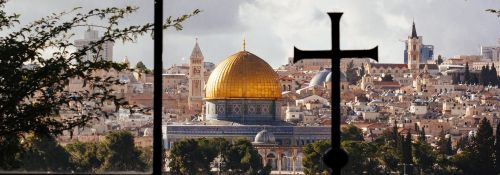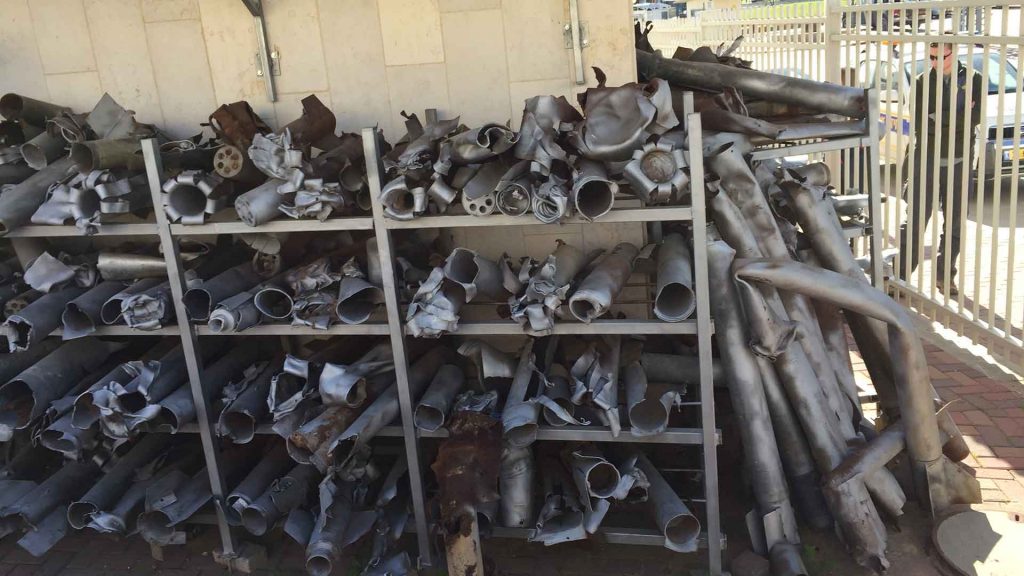
People and Politics of Israel
Written By Josh Bailey
My passion has always been to serve and protect those around me. That’s part of the reason I’m enrolled in a marine officers program here at Hillsdale.
When I found out I was selected to participate in the Passages January trip to Israel, I was stoked for different reasons. I was convinced that visiting the biblical places of the Holy Land I had heard and read about since childhood would be the highlight of my trip.
Turns out, seeing a woman who lives a literal stone’s throw from the border wall of Israel—and others like her who have learned to live in life-threatening conditions—broke my heart.
The political situation in Israel first impacted me when our group visited the Golan Heights, a mountainous region in the northwest corner of the country. Our tour guide took us up to a mountain overlooking the border where the UN has a military installation for security purposes. Although we were in no immediate danger, we could see cities on the Syrian side that are affected by the civil war that is tearing the country apart. We could even hear gunfire in the distance.
Being from the rural Midwest, I had never truly felt a personal connection to conflicts like the one in Syria, but standing on that overlook, the grave reality of such a terrible war confronted me.
As we visited the Gaza border towns, the threat was no longer beyond a border. It was before our eyes. These Israelis live under constant threat of rockets and other terrorist attacks from Hamas. Bomb shelters are everywhere. The bus stop was a bomb shelter. Every house had a bomb shelter. Even the obstacles the children played on in the playground were bomb shelters. Each town has sirens that go off when a rocket has been launched. Every citizen knows exactly how many seconds they have to find cover before impact.

The local woman I spoke with explained to us how she raised four children in that environment, refusing to move. Despite some of her friends and neighbors being killed, despite the fear for her children’s lives when the sirens sounded, despite her emotional breakdown when a rocket leveled her neighbor’s house, she and her family remained. As I listened to her story and saw the surrounding areas, all I could ask was why and what could be done to help.
Unfortunately, Americans are increasingly ill informed, yet they are intent on speaking their minds. This is why trips such as the one Passages offers, and institutions such as Hillsdale, are crucial. If young people are to lead the next generation, we must commit ourselves to learning about and experiencing the issues that plague us.
I left Israel with a much deeper grasp of the underlying tensions that prevent peace in the area, but the main impression I came away with was one of humility. The truth is that no one completely understands the situation in the Middle East—or has the perfect answer. What the area needs is people quick to listen, slow to speak, and invested in contributing in a positive manner.
As we flew out of Tel Aviv on the red eye, my mind went back to the borders and the torn society I had seen. I thought about how I could make it back to Israel and what I could do to impact that region in my future. It is ironic to consider my original expectations of the Holy Land versus the final effect, and yet I can image no other result.
 Josh Bailey, ’19, is a marketing major from the back roads of Iowa. A volunteer program leader, intramural athlete, and dedicated student, he can usually be found either busy with a project, sweating in the gym or buried in a book in the corner of the library. In his free time he enjoys adventurous shenanigans with the guys in his dorm.
Josh Bailey, ’19, is a marketing major from the back roads of Iowa. A volunteer program leader, intramural athlete, and dedicated student, he can usually be found either busy with a project, sweating in the gym or buried in a book in the corner of the library. In his free time he enjoys adventurous shenanigans with the guys in his dorm.